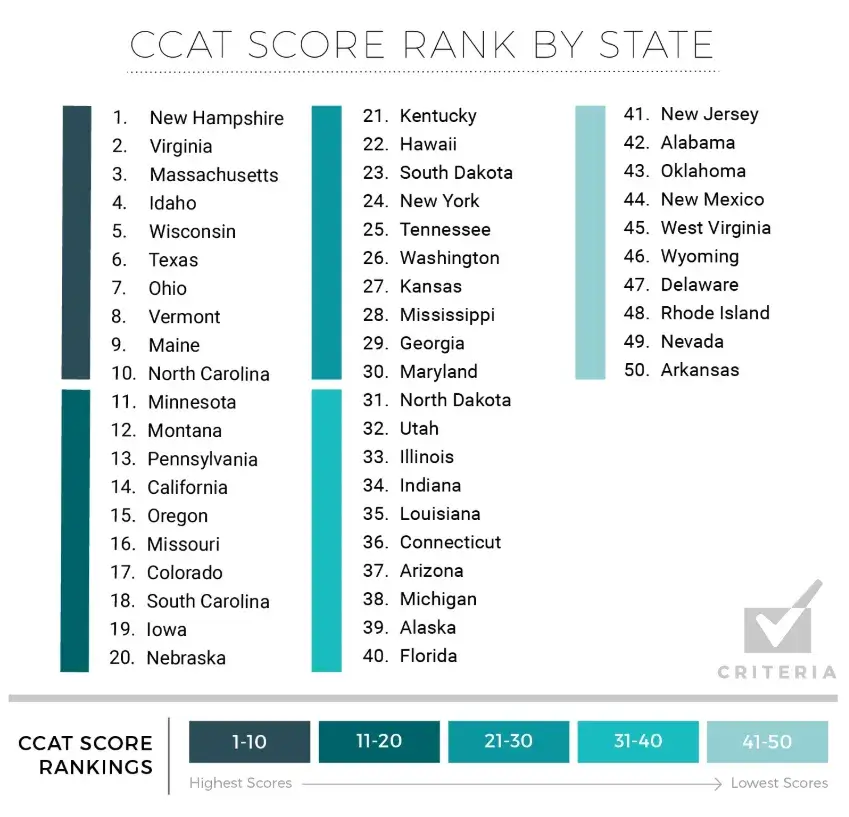Cognitive aptitude is one of the best predictors of job performance because it measures so many key drivers of work success – the ability to solve problems, think critically, and learn new skills. But does cognitive aptitude vary from state to state?
Every year, hundreds of thousands of job seekers take the CCAT, our most popular aptitude test. Using a sample of nearly a million CCAT scores, we decided to dig a little deeper to see which states came out on top.
Of course, there are significant caveats to the following data: it is based on a sample from about 5,000 employers across all 50 states who administered the CCAT to job applicants, so we don’t claim that it is a representative sample. If certain states tend to hire more skilled positions, for example, then the data will be skewed. It will also be significantly influenced by the makeup of our customer base, which varies from state to state. On the other hand, the data is based on almost a million test results, so it’s by no means a small sample. Here’s what we found:

New Hampshire won the top position, just barely beating out Virginia, the runner-up. (Maybe we SHOULD let New Hampshire choose our next president!) Filling out the rest of the top 10 are Massachusetts, Idaho, Wisconsin, Texas, Ohio, Vermont, Maine, and North Carolina.
The average overall score on the CCAT is about 25, and within this data set, there is a range of about 6 points from the highest to lowest scoring state, which is approximately one standard deviation. So while the gap between the highest and lowest scoring states isn’t that large, there is still some noticeable variation.
This list is based on a massive sample of 996,544 test scores from all 50 states, but states with smaller populations tended to have fewer test scores represented in the sample. As a result, smaller states were more likely to cluster at either of the two extremes – at the top or bottom of the list. This is commonly observed in statistical analyses, and we’ve observed it before when studying variations amongst the 50 states.
How does your state stack up? See the full list below:






